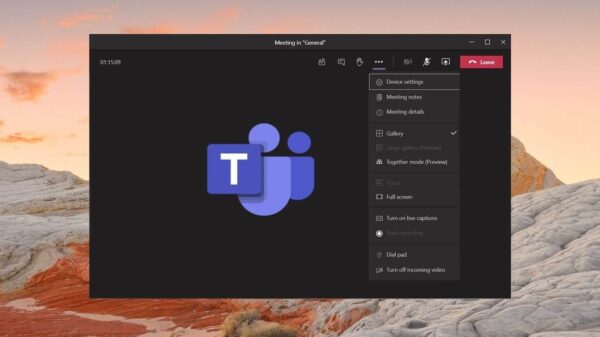Email has become an indispensable mode of communication today. From free email services offered by Gmail and Yahoo to paid email marketing tools for sending promotional emails, businesses have plenty of options when it comes to email communication.
If you have ever used a mass mail software, you might have heard of an SMTP server. SMTP is essentially the backend system that helps in sending and receiving emails.
In this article, we will try to understand what an SMTP server is and why is it good to use your own SMTP server for bulk mailing.
What is an SMTP Server?
SMTP stands for Simple Mail Transfer Protocol. SMTP is a popular protocol for email communication over the internet.
An SMTP server is a collection of servers whose primary purpose is to send and receive messages in the form of emails. Technically, an SMTP server is built just like any other server. The only difference is that it has a very specific purpose i.e. to process the data related to sending, receiving and relaying of emails.
Once you send an email, it is transformed into a string of code that is sent to the SMTP server. The server processes the code and passes the message to the intended destination. The server also verifies if the outgoing email is from an active account.
The SMTP server also sends the mail back to the sender if it does not get delivered. This informs the sender that either their email is blocked by the recipient’s server or they have the wrong email address.
How does an Email go from the Sender to the Receiver?
Sending and receiving emails may appear simple at first glance. However, a lot goes on the backend after you have hit the ‘send’ button. Let us try to understand how an email reaches from the sender to the receiver.
Let us assume you use your email client to send an email from your address (say bob@senderwebsite.com) to the address of your email recipient (say mary@receiverwebsite.com).
Once you click the send button, your email is sent to an SMTP server having its own address. This server acts as a Message Transfer Agent (MTA). The email client and the SMTP server relay information back and forth regarding your email.
This SMTP server also checks the transmission data of the email such as the sender, the recipient, domain names and so on. The server, however, does not check the body of the email.
If the recipient of the email has an account that is directly connected to the SMTP server, the mail gets delivered right away. Otherwise, the SMTP server relays the messages to an incoming server close to the recipient.
The process continues till the email is delivered to a server directly connected to the domain of the recipient. At this point, the email is said to have been delivered.
If the recipient’s server is down or busy, the SMTP server stores the message in a backup server. If no backup server is available, the email gets queued and the SMTP server tries to redeliver it from time to time till the delivery is successful.
After a certain number of unsuccessful delivery attempts, the mail is returned to the sender who gets notified of the delivery failure.
Choosing an SMTP Server for Bulk Mailing
Now that we have understood the concept of an SMTP server, let us discuss how you can choose one for bulk mailing.
You have multiple options when it comes to choosing an SMTP server:
- Free SMTP Server
- SMTP server of your Internet Service Provider
- SMTP service of your Hosting Provider
- Commercial SMTP services
- Dedicated SMTP server
Free SMTP Server: Several web-based e-mail services such as Gmail, Yahoo and Hotmail can be used for free for sending bulk emails. But they are not a recommended option for several reasons.
First, you may not be able to send as many emails as intended as your email service provider will pose restrictions on the number of emails that can be sent out in a given period.
Plus, you may be using an IP address that is also used by a spammer, with the result that your email does not get delivered successfully.
SMTP Server of your Internet Service Provider: Internet Service Providers often put restrictions on the number of emails that can be sent through their system to ensure their SMTP servers support all of its users whenever they need to send e-mails.
So, if you have a small mailing list, you can use the SMTP server of your ISP. Of course, you will need to go through the Terms of Service of your ISP available on their site to find how many emails you can send each day.
SMTP Service of your Hosting Provider: Several hosting services such as GoDaddy and Bluehost offer domain names along with an email address that uses the domain name e.g. abc@mybusiness.com. In such cases, you can use the SMTP server that comes with your hosting plan to carry out mass mail campaigns.
Because hosting services also have restrictions on the number of emails (unlike cloud hosting, where there are no such limitations) it is imperative that you read their email-sending policy to avoid any hassle.
Commercial SMTP Services: Several companies like SendGrid, SendinBlue and SocketLabs offer specialized SMTP services. They typically offer paid monthly plans that allow you to send thousands of emails every month.
Since most of the commercial SMTP services also offer a free plan with a limited number of mails, you have the option of testing various plans before deciding which one best suits your needs.
Dedicated SMTP Server: In addition to the above options, you can use a dedicated SMTP server for bulk mailing. If you have a large database of recipients whom you need to send mails now and then, a dedicated server with third-party SMTP service works best for you.
A dedicated SMTP server for bulk mailing not only speeds up the delivery of emails but also ensures the mails do not land up in spam folder. With a dedicated server, you do not have to share the resources with another user and, as a result, enjoy complete flexibility over your server. Plus, you get a dedicated IP address.
Go4hosting offers world-class dedicated SMTP server for bulk mailing, with the option of Linux and Windows operating platforms. For more information, connect with our technical consultants today.































































You must be logged in to post a comment Login